Young Lesbians Triumph Over Freud’s Grim Legacy in the Age of Trump
The misconceptions and fantasies that have dominated anti-lesbian prejudice over the centuries are breaking apart. As the bastions of resistance to gay rights are toppling in the United States, the silent majority needs to pivot.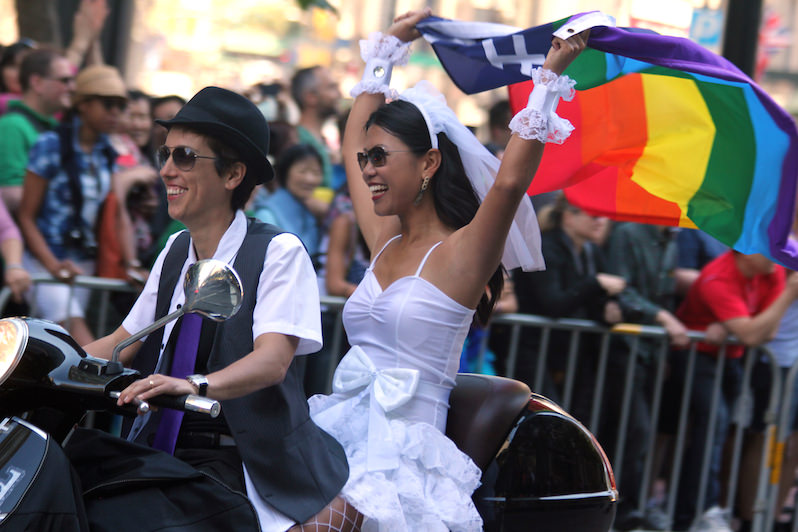
A lesbian couple celebrates after getting married in Berkeley, Calif. (Wikimedia)
Now and then a scientific-sounding word will insinuate itself into common use. Some prevailing trend will lend it currency and its utterance will increase exponentially. In 2016, the term, misogyny, is just such a word. We’ve heard it almost as frequently as “throwing [someone] under the bus” or “doubling down.” And now our president-elect is transparently a misogynist, and it’s no mystery that the term has pushed its way into the vernacular.
Liberals want to think that the reflexive disesteem of women is on the wane. But before we become complacent, we should consider the case of contemporary lesbians who must tolerate outworn patriarchal attitudes even more fiercely than their straight sisters. I find they are currently doing this with a truly admirable gusto.
No view of lesbianism seems more ludicrous to contemporary sensibilities than the one expounded by Sigmund Freud. While Freud was certainly a revolutionary, it is important to note he was also a late Victorian gentleman, no freer from the sway of his age than Galileo, Shakespeare or Socrates were from theirs. It is also essential that he be seen as a Jew, a secularist, and a doctor trained in neurology: His Judaism nudged him away from mainstream thinking. His secularism led him to mistrust spirituality; and his neurology studies encouraged him to view his tenets as scientifically based.
Although the debunking of Freudian theory has proceeded swiftly since the early 1970s—most current psychology is eclectic—Freud dies hard. It’s folly to dispute him on the hostility behind jokes, the true meaning of utterances intended to obfuscate, the telltale signs in body language and slips of the tongue and pen.
Freud was intensely interested in probing the psyche through language, and this practice made him a fruitful subject among English professors and literary critics in American universities. Freud’s patriarchal, Victorian attitudes were not unlike those of the post-World War II professorial class before the feminist revolution in the 1970s. Many academics espoused his position that male homosexuals could live well-adjusted, productive lives in society, while lesbianism was the harbinger of serious mental illness.
Odd then, that after Carl Jung renounced his ties to psychoanalysis, Freud’s closest friend and intellectual companion became his daughter Anna, a lesbian. In addition, the Viennese doctor violated his own strictures by analyzing her himself. Earlier, he had formulated the theory of the Oedipus complex, a drama occurring in the life of a male child roughly between the ages of 3 and 6, when Freud found boys inclined to harbor unconscious wishes to replace their father and become their mother’s mate.
His ideas of the genesis of lesbianism are wilder still, centered on the murky world of the Electra complex, the flip side of the Oedipal phase. Freud grew ever more convinced of the Electra theory through his analysis of Anna. He hypothesized that through this episode the father is the love object of the female child, and that the incipient lesbian will ultimately retaliate against him for impregnating the mother, switching her affinities and making the mother the object of libidinal attention. Such a pattern shows the female child turning to other females as she moves into her mature years, according to University of Melbourne professor, Barbara Creed, author of “Lesbian Bodies: Tribades, Tomboys and Tarts.”
In the unsophisticated milieu of the 17th century, when female “sodomites” in Europe could be burned at the stake, men had imagined the clitoris as an essentially phallic member, and women possessing large clitorises were deemed to be either hermaphroditic or aspiring men. In the lurid imaginations of males of the period, these oversize members were fully capable of penetration. Freud, 200 years later, found the pursuit of clitoral gratification an immature impulse—often indicative of nascent lesbianism—while he considered contentment with purely vaginal gratification the sign of a healthy, mature heterosexual female.
Clearly, females were at far greater psychological risk than males.
Young boys, Freud thought, lived in mortal (albeit unconscious) terror of castration by the father and hence were predisposed toward “obedience.” But females, whose sexual organs are internal, had no concerns about such violence, he determined, and hence were inclined to promiscuous conduct, impervious to the prospect of genital mutilation by some avenging angel.
Freud’s theories, in league with the prevailing Victorian ethos, afforded cover to the unschooled Anglo-American masses, who thought homosexuality unnatural. So, with these imposing narratives in the book and the volume of the 20th-century brain, how do contemporary lesbians cope with such colossal wrongheadedness?
Recently, I interviewed two lesbians living in Berkeley, Calif., whom I will call Sarindar and Tess. Both are 23.
Sarindar is a working actor and Tess a rock musician, with an album being released. They are both erudite, having earned bachelor’s degrees from Vassar College in Poughkeepsie, N.Y., where they met and became lovers in their senior year. I had known Sarindar when we were fellow actors in an Aristophanes play in Los Angeles a year ago.
Sarindar’s young life breaks the Freudian mold for lesbians in all kinds of ways.
Her father spent his first 20 years in India, moving to America ultimately to earn a Ph.D. in neurophysics. He and Sarindar have been close from her earliest years. She grew up in San Francisco and recognized her sexual leanings at age 13, coming out to her parents shortly thereafter. Her mother had made homophobic remarks when Sarindar was a child but accepted the girl’s statement and apologized for her disparaging attitude. Her father expressed love, tenderness and support and does so nowadays in response to her posts on social media, even those with gay material.
Sarindar is inclined to use the pejorative term, “queer.” She claims that owning the word eliminates its sting and celebrates her uniqueness. She is a proud lesbian with an intellectual seriousness that is refreshing in anyone. A gifted actor with a bell-clear voice, she is especially moving when her character speaks with conviction about morality or injustice.
Tess was raised in a socially conservative small town in Tennessee. She has a pretty, angular face, a slender tomboy’s body, and long strong fingers, strategically gifted for strumming on her “axe” or wrapping around the grips of a golf club (she’s a scratch handicap golfer). Tess is a virtuoso with a pop ballad, and she brings the goods with harder rock as well. She majored in religion at Vassar and is keen when discussing matters abstract or existential.
No doubt, her nimble intellect came to the fore in earning her straight A’s in high school, where she was something of a recluse. She stayed aloof from the in crowd, never thought to be one of the “cool kids.” A devout Christian, Tess occasionally had to prod her parents into attending Sunday worship. The experience of prayer had always been acutely emotional for Tess, and throughout college, spirituality was a significant preoccupation, prompting her to spend the fall semester of her junior year in an exchange program in India. She and I discussed those four months and their importance in the evolution of finding her gay identity. The proximity of Bengalis at prayer animated her own devotions, which would lead to a major personal epiphany.
Last spring, Tess revealed her lesbianism to her parents, a watershed announcement in her life, given their conservatism and the fact that she had only begun to embrace her proclivities as an 18-year-old college freshman. They seemed to find the news unsurprising.
As a young musician in Berkeley, Tess has found her latent sociability and loves musical, beer-soaked evenings with friends of every stripe.
The lesbians I observed in the “Everyone Welcome” bars of Berkeley’s youth mecca were jaunty, joyous, and seemingly in the full blush of lesbian chic, a thing to celebrate with hallelujahs after such a cruel past.
The misconceptions and fantasies that have dominated anti-lesbian prejudice over the centuries are breaking apart. As the bastions of resistance to gay rights are toppling in this country like so many dominoes, it is the silent majority that needs to pivot.
Independent journalism is under threat and overshadowed by heavily funded mainstream media.
You can help level the playing field. Become a member.
Your tax-deductible contribution keeps us digging beneath the headlines to give you thought-provoking, investigative reporting and analysis that unearths what's really happening- without compromise.
Give today to support our courageous, independent journalists.
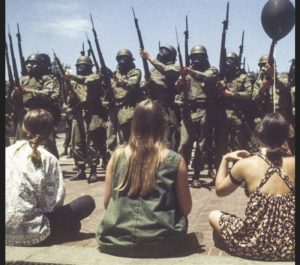
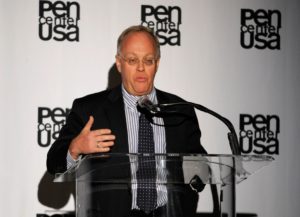

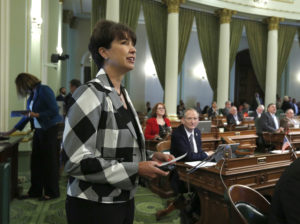
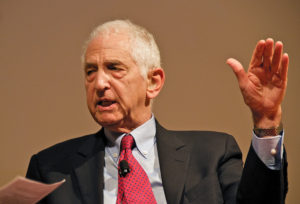
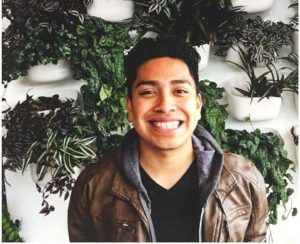
You need to be a supporter to comment.
There are currently no responses to this article.
Be the first to respond.